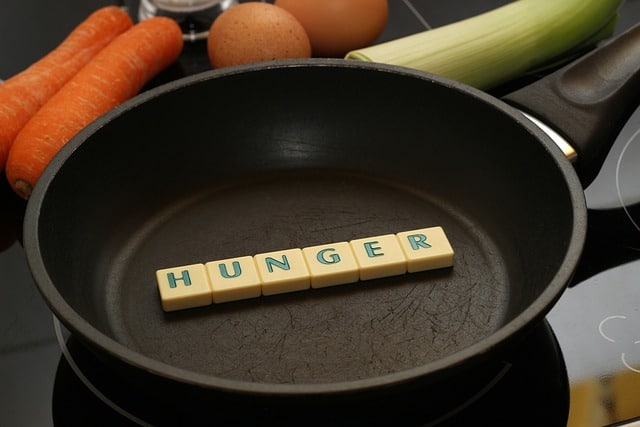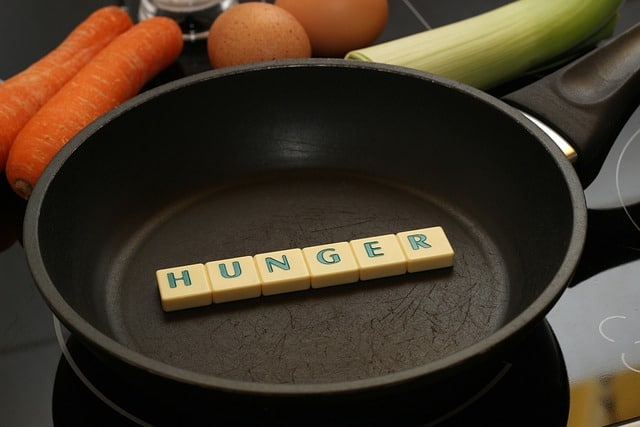
The World Food Prize Laureates recently issued comments about political priorities.
As the U.S. elections draw near, the World Food Prize Laureates said they are struck by the lack of attention to a crucial issue—world hunger. The rest of this article is a summary of their comments. Recent progress against hunger is reversing, with the number of people facing chronic hunger rising from 581 million (7.5%) in 2019 to 733 million (9.1%) in 2023. This crisis threatens peace and prosperity worldwide. The solution lies in decisive political leadership, particularly from the United States, to revive global anti-hunger efforts.
The COVID-19 pandemic disrupted economies and trade, sparking inflation and high interest rates. Low-income countries are now grappling with immense debt, often not of their own making, and are spending more on debt service than on health and education. Climate change is intensifying these challenges, hitting tropical regions the hardest, while violent conflicts pull focus and funding from necessary investments for a sustainable future.
Despite setbacks, we have proven solutions to reignite progress against hunger. Investments in agriculture—improving seeds, soil, pest control, technology, water management, and finance—can drive productivity. Building infrastructure to move food to markets faster and with less waste enhances food security. Producing local, nutritious, and climate-resilient foods is critical for sustainable progress.
This week, global leaders convened at the Borlaug Dialogue in Des Moines, Iowa, to discuss strategies for tackling hunger and malnutrition. This year’s World Food Prize Laureates, Dr. Geoffrey Hawtin and Dr. Cary Fowler, have led efforts to preserve crop biodiversity, a vital defense against food insecurity. Past Laureates continue to contribute to solving issues like demining, food production, and climate resilience.
Presidents of African nations, along with the World Bank and African Development Bank leaders, have gathered to address debt relief, climate-resistant agriculture, and pathways to peace. But real progress requires political will. We must seize the upcoming opportunities for change:
- Global Alliance Against Hunger and Poverty – The U.S. can strongly support the Global Alliance Against Hunger and Poverty, a new initiative by the G20, launching in Brazil next month. The alliance, led by World Food Prize Laureate President Lula da Silva, seeks to scale up anti-hunger efforts and support governments pursuing proven, nationwide solutions.
- World Bank Funding for Low-Income Countries – This December, the U.S. can lead in replenishing the World Bank’s fund for low-income countries. Post-COVID support is essential to help these countries recover and thrive.
- Debt Relief in 2025 Jubilee Year – In 2025, the U.S. can work with other industrialized nations to respond to Pope Francis’ call for bold action on low-income countries’ debt, which he has proclaimed as a Jubilee year.
- Voter Decisions and Global Hunger – U.S. voters should consider how election candidates impact hunger locally and globally. Their choices will influence future progress in addressing hunger and poverty.
As we gather in Iowa, we look beyond the U.S. election, focusing on a world without poverty and hunger. While COVID-19, climate change, and conflict have slowed progress, the Borlaug Dialogue provides hope, highlighting the power of ideas and collaboration. With U.S. leadership, we can support those struggling with hunger worldwide.
Signed in Partnership,
World Food Prize Laureates: Maria Andrade (2016 Laureate), David Beckmann (2010 Laureate), Howarth Bouis (2016 Laureate), Gebisa Ejeta (2009 Laureate), Lawrence Haddad (2018 Laureate), Geoffrey Hawtin (2024 Laureate), Gurdev Khush (1996 Laureate), Heidi Kühn (2023 Laureate), Rattan Lal (2020 Laureate), Jan Low (2016 Laureate), Per Pinstrup-Andersen (2001 Laureate), Pedro Sanchez (2002 Laureate), Shakuntala Haraksingh Thilsted (2021 Laureate)
The post U.S. Elections Overlook World Hunger Crisis Amid Rising Global Needs appeared first on Seed World.
